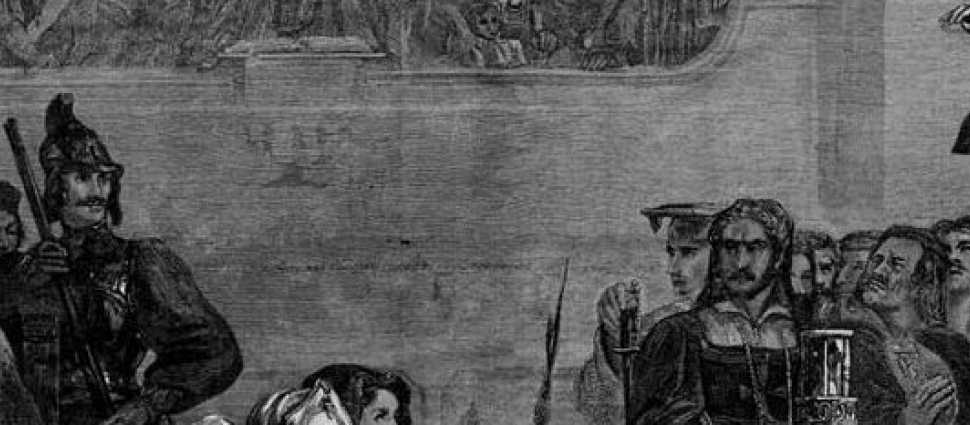John Knox on Election & Soteriology

Oct 20, 2016
Having considered John Knox's doctrine of predestination (part 1) and how he related it the attributes of immutability and omniscience (part 2), we now move specifically to election.
Election
Election for Knox was the “eternall and immutable counsell of God, in which he hath purposed to choose to life everlasting, such as pleased his wisdom in Christ Jesus his Son.” He was clear that this election was not on the basis of forseen good works or faith; rather it was “without respect to be had to our merites or works.” Indeed, to maintain otherwise was to confound the effects of election with its cause; it is because an individual is elect that they demonstrate faith and obedience, not the other way round. The love of election was strictly limited – Knox “constantly denied” that it extended to all. As such election was a discriminatory decree proceeding from the will of God to “make a difference betwext man and man.” (Works, 5:204, 43, 61, 62)
Knox made a number of practical applications of his doctrine of election:
- Despite his pastoral difficulties with his mother-in-law’s lack of assurance, Knox held that his doctrine of election was vital for assurance. Only a doctrine of election which placed the stability of salvation not in ourselves but in the “eternal and immutable good pleasure of God” could produce a stable and established faith.
- He was of the opinion that his doctrine of election encouraged humility. As there was no cause in the individual to merit election, so there was no reason for pride.
- He also believed that his doctrine of election in no way encouraged careless living or neglect of holiness. Indeed he held that God had appointed his elect “to walk in purenesse and holiness … [and to] continually fight against the lustes and inordinate affections that remaine in this our corrupt nature.” Indeed without such evidence “then we can never be assured of our election...” As a concreted example of the ability of a firm belief in predestination to inspire commitment to discipline and godliness rather than licence, Knox pointed to the city of Geneva.
- Knox steadfastly refused to speculate on the number of the elect. While observing that the drift of scripture was to present the true church of God as a “litle flocke,” he was not willing “boldly to pronounce” whether more were reprobate than elect. The number of the elect, however, was fixed from all eternity. (Works, 5:26, 210, 210, 40)
Other Aspects of Knox’s Soteriology
Knox did not articulate a doctrine of predestination in isolation. His views clearly sprang from and were related to broader aspects of his soteriology.
Central to the debate over predestination is the extent of the impact of the fall. Knox held that the fall was decreed and ordained by God. The effect of the fall was to transform that which God made “verie good” into “extreme evill.” This fall impacted not just Adam, but all of humanity which stood in him. Adam was therefore a representative head of the human race. All descending from Adam were therefore in a state of “hatred, sinne, and death” and as such incapable of saving faith. It was therefore natural for Knox to hold to sovereign election given his view of the bondage humanity was left in following the fall. (Works, 5:65, 91, 94, 242, 60, 396-397)
Accompanying his doctrine of the effects of the fall it is unsurprising to see him espouse a clear doctrine of effectual calling. Faith was “altogether the worke of God”. God “doth illuminate the eyes and mollifie the heartes of … [the elect] by the power of the Holy Ghost.” (Works, 5:281, 382)
Knox does not devote any significant attention to the extent of redemption in On Predestination. He affirms that “Christes death is sufficient for to redeme the sinnes of the whole world.” However, in another passage Knox seems to clearly imply a redemption that is particular to the elect. He states that it is “impossible” that Christ’s death would lack its “effect” which Knox sees as “the life of those that of his Father are committed to his charge, of whom impossible it is that any shal perish”. (Works, 5:250, 300)
Of fundamental importance to Knox was the doctrine of the perseverance of the saints. The doctrine was stated clearly in his writings: “election and salvation are so sure in him, that so many as be Elected in him to life everlasting, shal by grace attein to the same.” Knox believed that the “whole controversie” over predestination really distilled down to this one point: “Whether that such as God, in his eternall counsel, hath Elected in Christ Jesus to life everlasting, can after be Reprobated, and so finally perish; and that shal ye never be able to prove.” For the elect to fail to persevere is “a thing no less impossible, then that it is that Christ Jesus shall cease to be head of his Churche, and the saviour of his bodie.” (Works, 5:279, 264, 255)
Conclusion
All this to say, Knox espoused a well-developed doctrine of election that was an integral part of his overall theological understanding. Next time, the darker side of election will be considered: reprobation.





